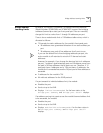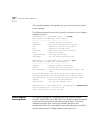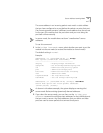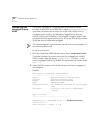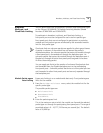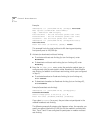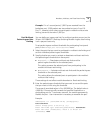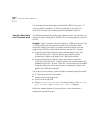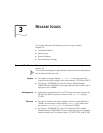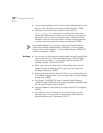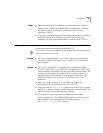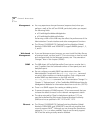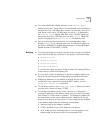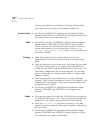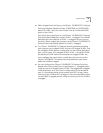
26
C
HAPTER
2: R
ELEASE
H
IGHLIGHTS
This example sets the port-ingress threshold to 1000 fps for port 1. If
incoming traffic exceeds this 1,000-fps threshold on the port for 7
continuous seconds, the module permanently disables the port.
How Port Rate Limits
and Thresholds Work
The following example illustrates what happens when, for example, you
specify an ingress threshold of 2,000 fps for multicast packets on ports 3
and 10.
Example:
If port 3 receives multicast packets at 1,500 fps and port 10 at
1,700 fps, both ports are functioning within the 2,000-fps ingress
threshold. If either port begins to receive multicast packets at a rate
greater than 2,000 fps, the module monitors the port for 1 second.
■
If the monitored port’s packet-ingress rate decreases to less than
2,000 fps during this 1-second period, the module resumes
comparing its ingress rate against the 2,000-fps threshold.
■
If the monitored port’s packet-ingress rate remains more than
2,000 fps during the entire 1-second period, the module temporarily
disables the port for 1 second. After this 1-second period, the module
brings the port back online and resumes comparing its ingress rate
against the 2,000-fps threshold.
If as a result of this process, a port exceeds the packet-ingress threshold
for 7 continuous seconds, the module:
■
Disables the port permanently.
■
Sends a trap to the EME.
■
Displays
ratelimitexceeded
for the port status in the
bridge
port summary
and
bridge port detail
displays.
When the module disables a front-panel port, user intervention is
required to reenable the port.




